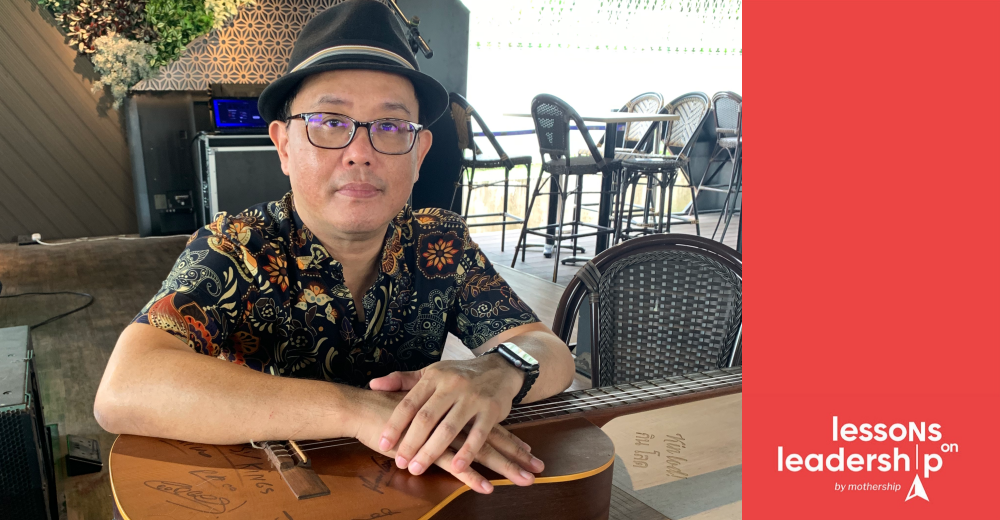Follow us on Telegram for the latest updates: https://t.me/mothershipsg
Live music was gone for two years. You can imagine the impact it had on those who rely on it for their bread and butter.
One such food and beverage (F&B) business is Timbre Group.
Danny Loong, the CEO of Timbre Group, recalled long queues and excited crowds that used to gather at his four – now three– Timbre outlets (Timbre X S.E.A, Timbre+ One North and Timbre+ Eastside) hyped up for the bands playing that night.
"We really attract all kinds of people watching these young Singaporean bands on stage. When they (the bands) go up on stage, they feel at home."
The bands would shout to the crowd: "How are you doing tonight? Any requests?" And the crowds would respond, singing and dancing along.
For about 17 years, the F&B company has not only been a place for dinner and late-night drinks but a venue for local musicians to find their sound. To Loong, Timbre is the "home for musicians".
For two years, that home was shuttered because of Covid-19, but now, it has started to reopen its doors again.
"Mix of emotions... We've been waiting for the past two years. So we're all very elated, very excited," Loong said about being able to play live music at his establishments once more.
Nonetheless, the challenges that Loong and his company endured over the past two years made him realise what he needed to do to make Timbre better than it was before.
Three things that he learned:
- Don’t get emotional when you have to close down a store
- The need to reevaluate company culture and structure
- Acknowledging his musicians' contribution to the business
A place for musicians
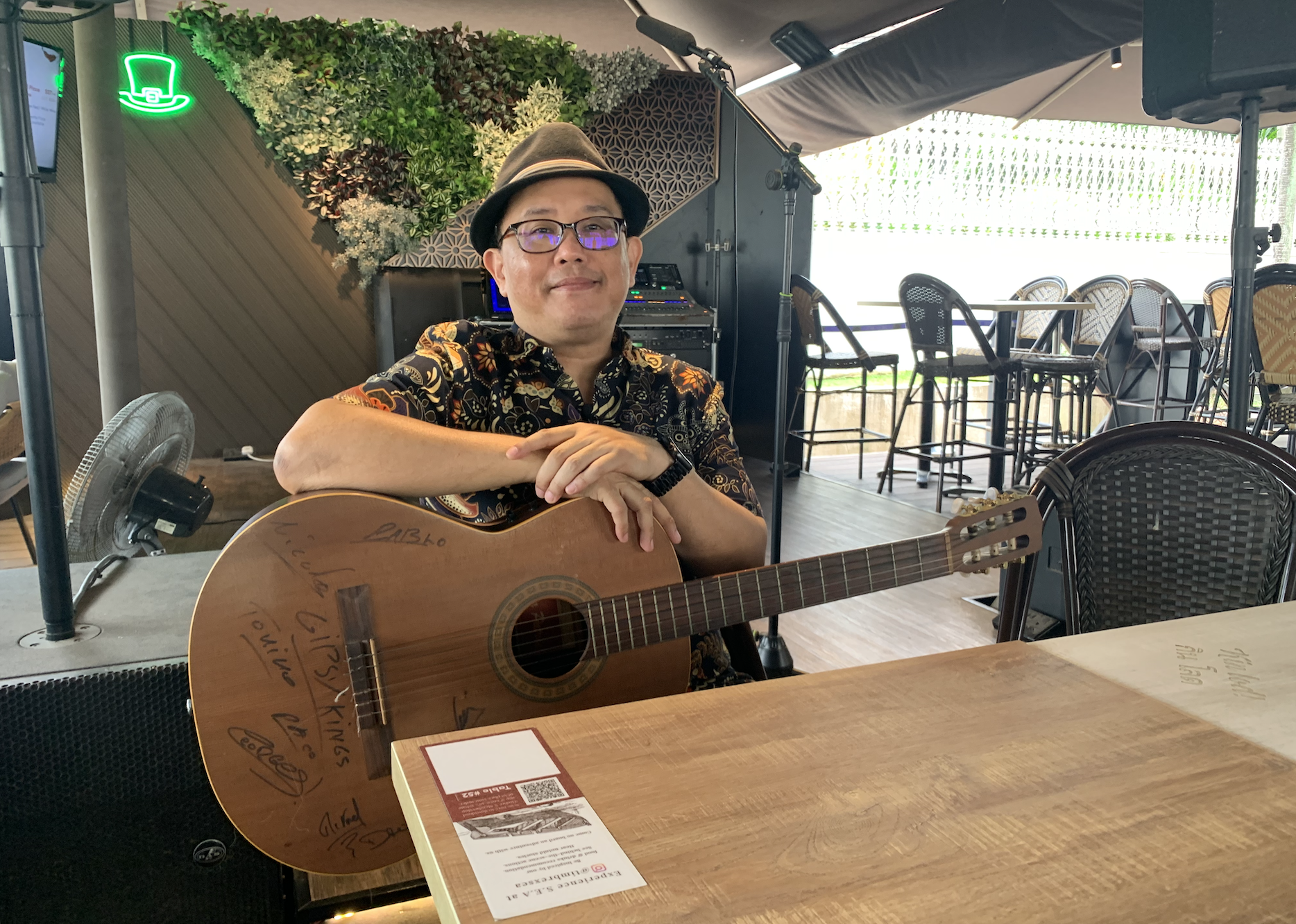 Image taken by Alfie Kwa.
Image taken by Alfie Kwa.
Loong walked into Timbre X S.E.A for our meeting dressed in a batik shirt and a fedora, and armed with a guitar.
His fedora, or his "musician hat" as he called it, is an iconic piece of clothing for musicians of his favourite music genre — the Blues.
From playing the guitar in church when he was younger to starting his own band in university, it can be said that Loong grew up with music.
Music often lifted his spirits, be it the story behind the lyrics, its rhythm, or its tune.
"Music brings people together. Music encourages and inspires you. When you're feeling down, sometimes with our favourite music, we somehow just feel better."
It's safe to say that music has a special place in Loong's heart.
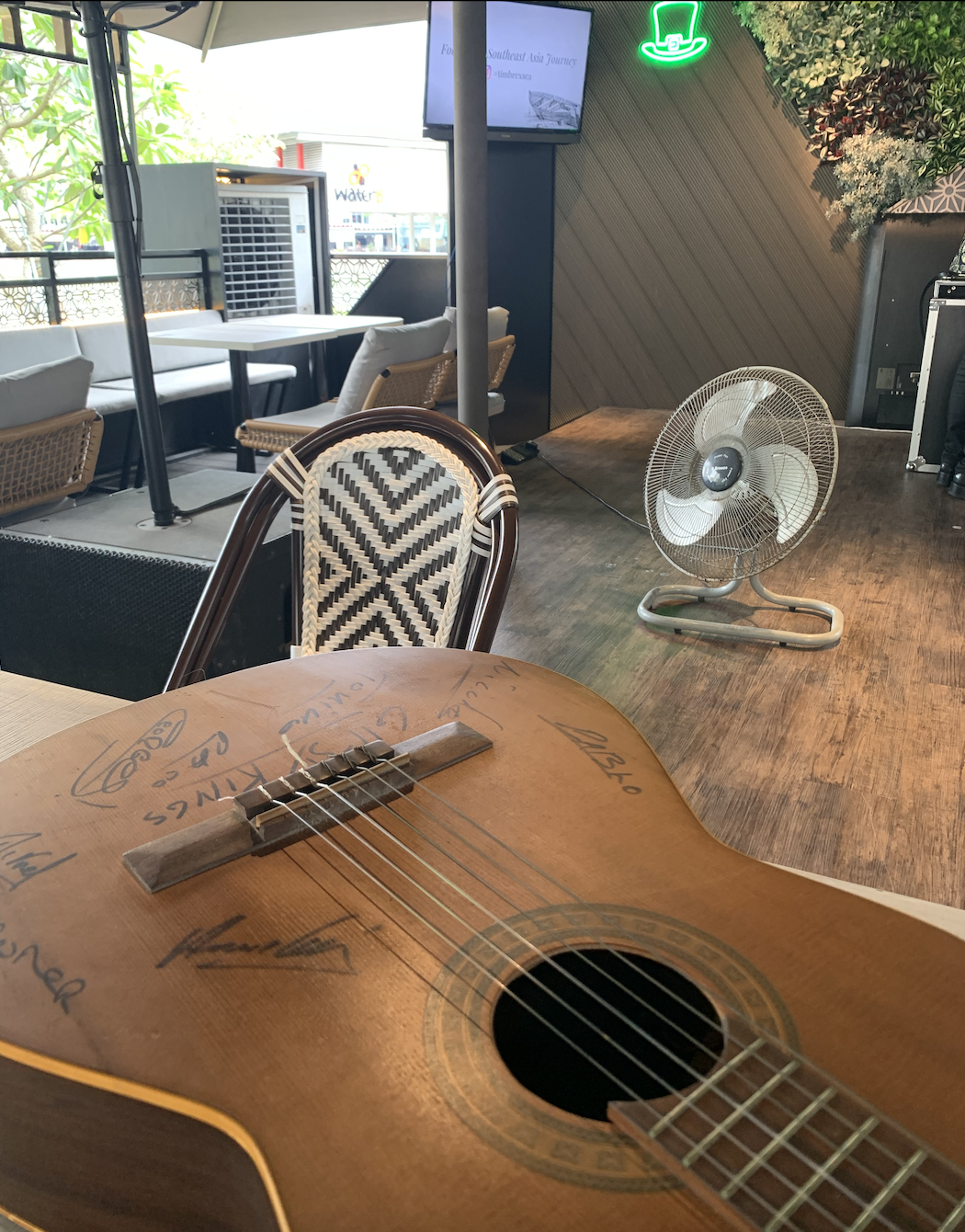 Image taken by Alfie Kwa.
Image taken by Alfie Kwa.
More importantly, Loong desires to see a more prominent and vibrant local music scene where young musicians can pick up music and be able to perform for crowds that will appreciate their art.
So, he started Timbre Group in 2005, not solely to get into the F&B industry but to boost the music scene locally.
"Being a musician is a job, " he said with much conviction. It's something he thinks many look past.
"For example, people who don't really support Singapore bands say things like: 'Oh, are they really good? They can play but can they survive?'
We should stop, we should make it known that music is a career. Like writing is a career, journalism is a career, designing is a career."
Loong believes that for musicians in Singapore to succeed, there must be monetary value attached to their art. He gave an example of how a company pays an influencer S$10,000 to promote a product to their followers, and in a way, that amount is what their skills are worth.
That's what he wanted to do for local artists — allow them to make a living from their craft.
So in 2005, he thought to himself: "What can I do about it?"
That's when he decided to start Timbre Group's first branch — The Substation — and paid musicians who performed.
"I'm a big advocate for some of these young people to find a stable career path. All our bands are paid, they make a living."
He added that some of them even started families while working with the company.
That's one of Timbre Group's core values: Supporting the local music community.
Timbre has a list of resident musicians from 53A to Supersonic. They have also featured local bands and singers like Gentle Bones and The Sam Willows.
But for Timbre, music and F&B had to come hand in hand.
"(Starting Timbre was) more for the music but after a while I had to learn the F&B part."
Balancing business and music
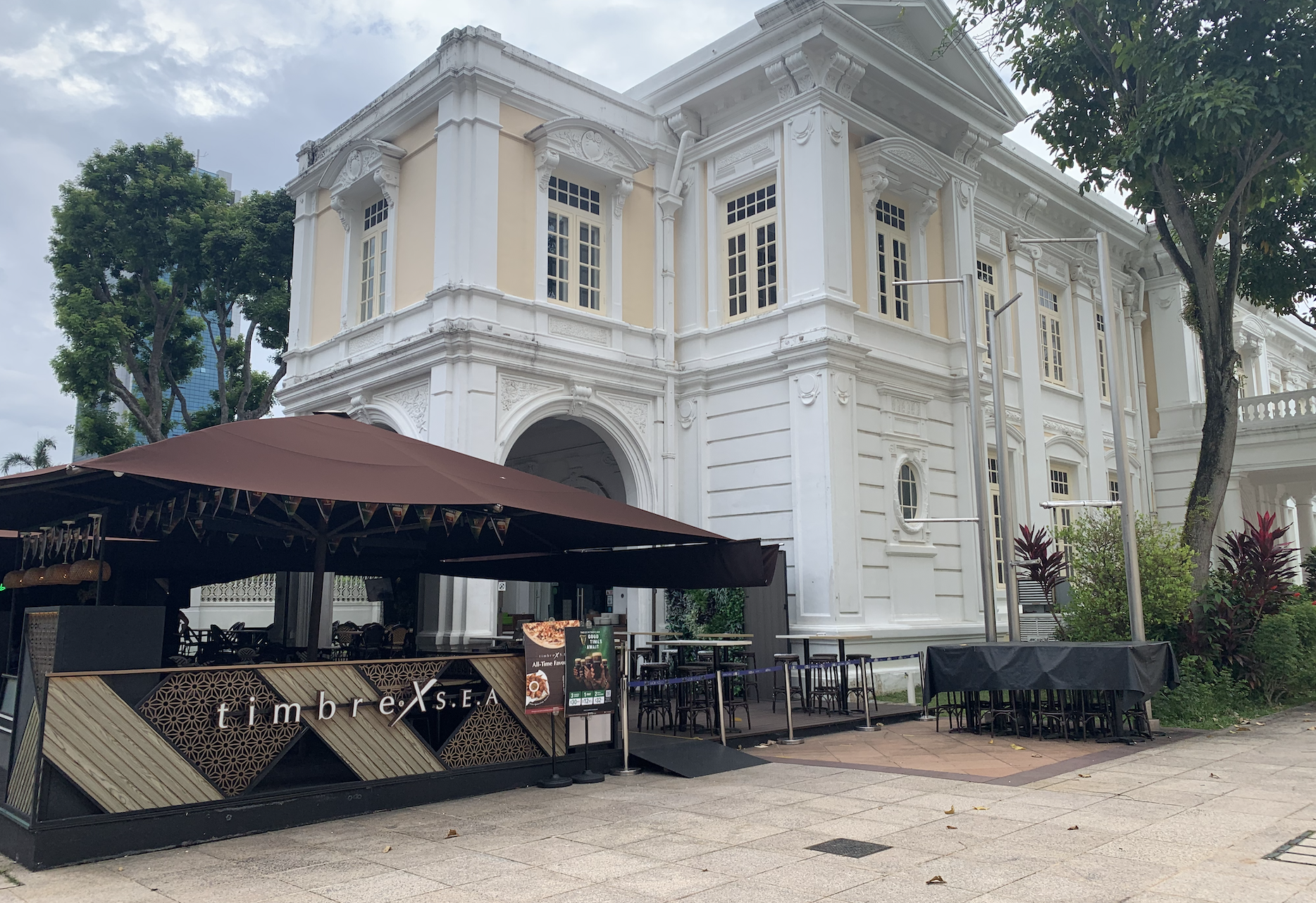 Image taken by Alfie Kwa.
Image taken by Alfie Kwa.
As a musician himself, Loong would rather be out playing his guitar and jamming to songs.
From 1999 to 2004 (a year right before he started Timbre Group), he was a full-time musician.
And before the Covid-19 pandemic, he and his band, Ublues, played in concerts in Indonesia, the U.S., Australia and even Spain.
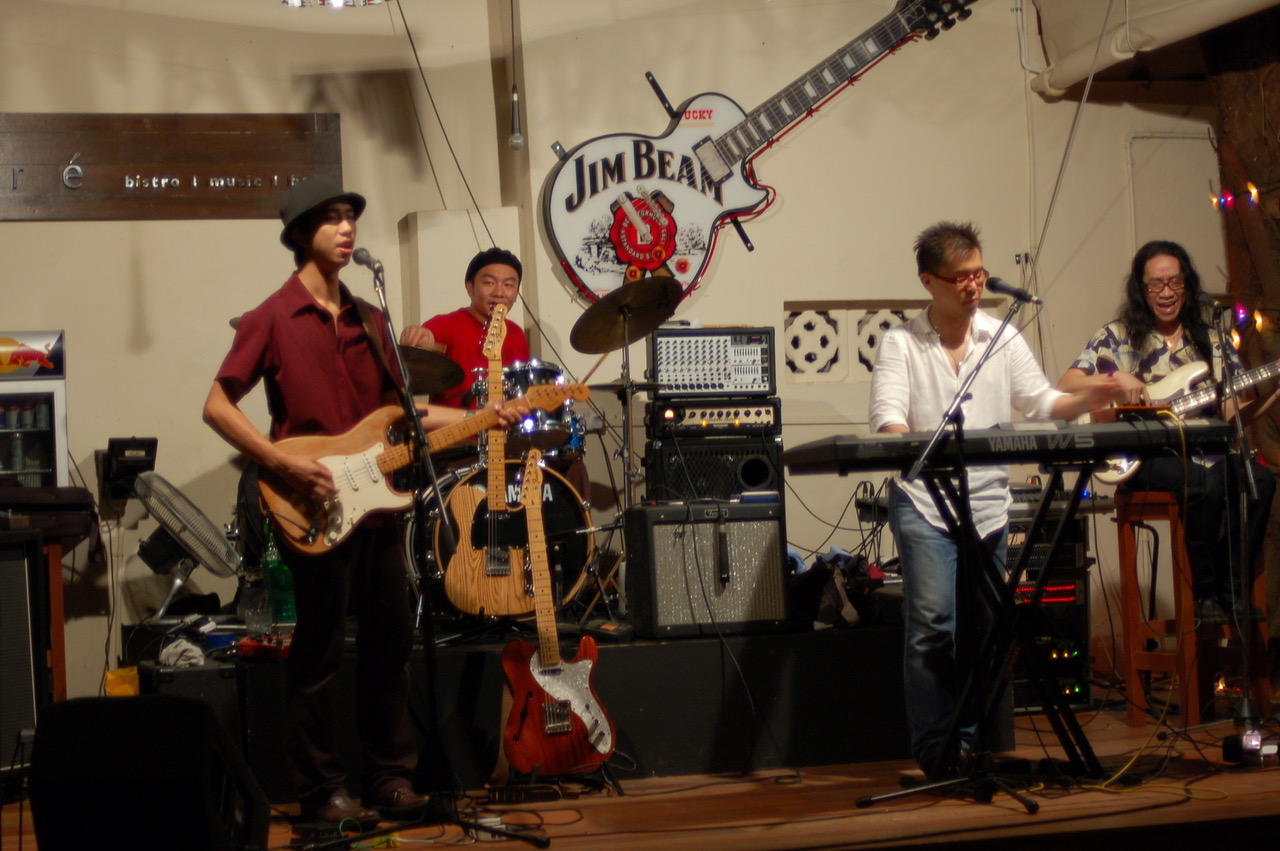 Ublues playing at Timbre @ The Substation during launch on June. 27, 2005. Credit to Timbre Group.
Ublues playing at Timbre @ The Substation during launch on June. 27, 2005. Credit to Timbre Group.
But he had a bigger dream to chase when he started the company, so it eventually took precedence.
Being able to grow the local music scene was a challenge. As mentioned before, it relied heavily on those willing to consume the art that local talents put out there.
He knew how it felt to be a musician in Singapore and experienced it himself — the lack of support for local talent, the lack of venues to perform at, for instance. So, he took it upon himself to be a big part of the scene.
Loong is currently the Vice-Chairman of Musician Society, Singapore (SGMUSO), a committee member of the Singapore Nightlife Business Association and on the board at the School of the Arts, Singapore (SOTA).
Still, there needs to be a balance between supporting live music and making a business work. Because if the business fails, how is he going to support the musicians?
But, sometimes as a musician, he gets carried away. He admitted that when he has his "musician hat" on, he'll think: "Nah, don't need to do the report la."
"As a business person, you're responsible for your people, your team, and your staff."
It isn't only the musicians who rely on Timbre for a living. The company also supports wait staff, chefs and other staff that are part of the Timbre Group.
For Loong, this means having to strike that balance between being a musician and a businessman.
"We're dealing with tenants, we are dealing with partners, you know. I cannot just say: 'Never mind la, rock and roll.'. I must say: 'How can we help you? Let's work it out.'"
On the F&B side, Loong has been curating the menu for Timbre outlets with his team from their popular duck pizza to frozen margaritas.
In his way, he also supports local F&B talent by working with local hawkers to make contemporary versions of our favourite fare like har cheong gai (prawn paste chicken) and kopi.
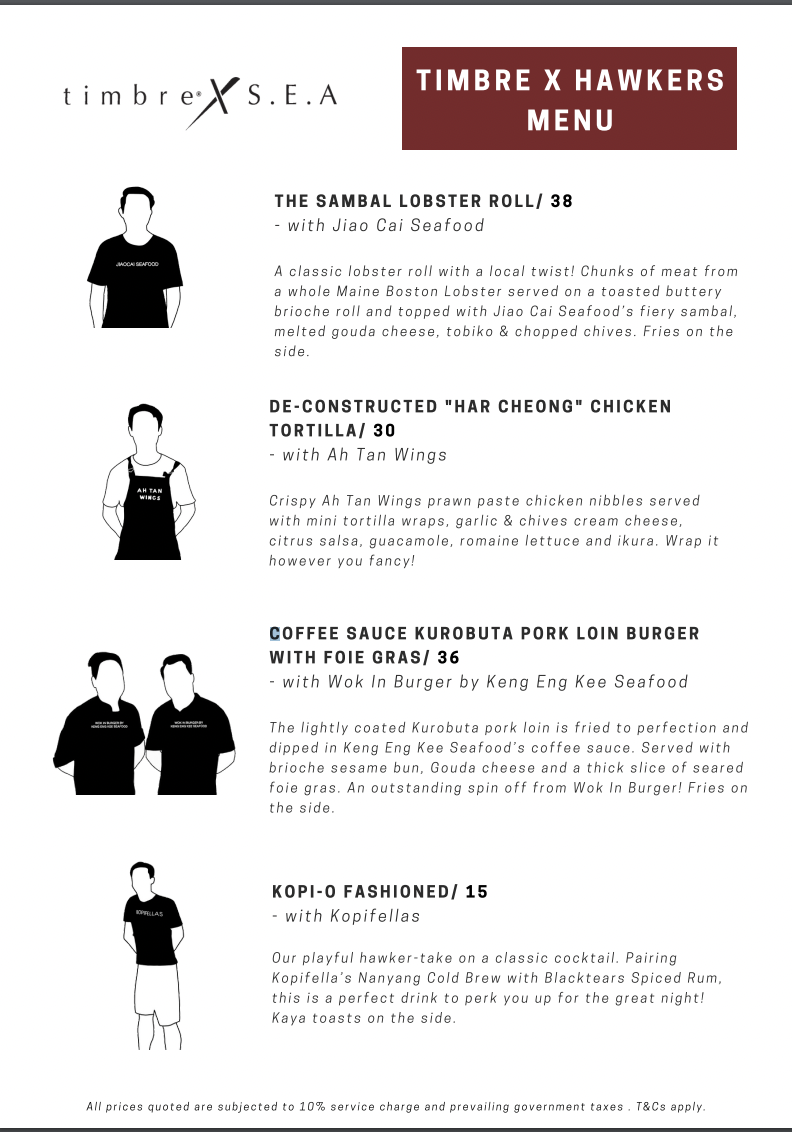
Besides that, Loong has been expanding, opening Timbre+ Eastside just this year.
In charge of placemaking decisions for his outlets, he said that even without live music, they could still get a steady stream of customers.
"Timbre+ One North now attracts a lot of the FinTech, and tech startups (customers), it's a very dynamic kind of culture. Plus the east side attracts a lot of cyclists, families and also people from the east la."
"So we are actually doing okay," he said when I asked how they coped during the pandemic. "My sympathy is really more towards the musicians. Really no gigs, or very, very little gigs."
Musicians were terminated
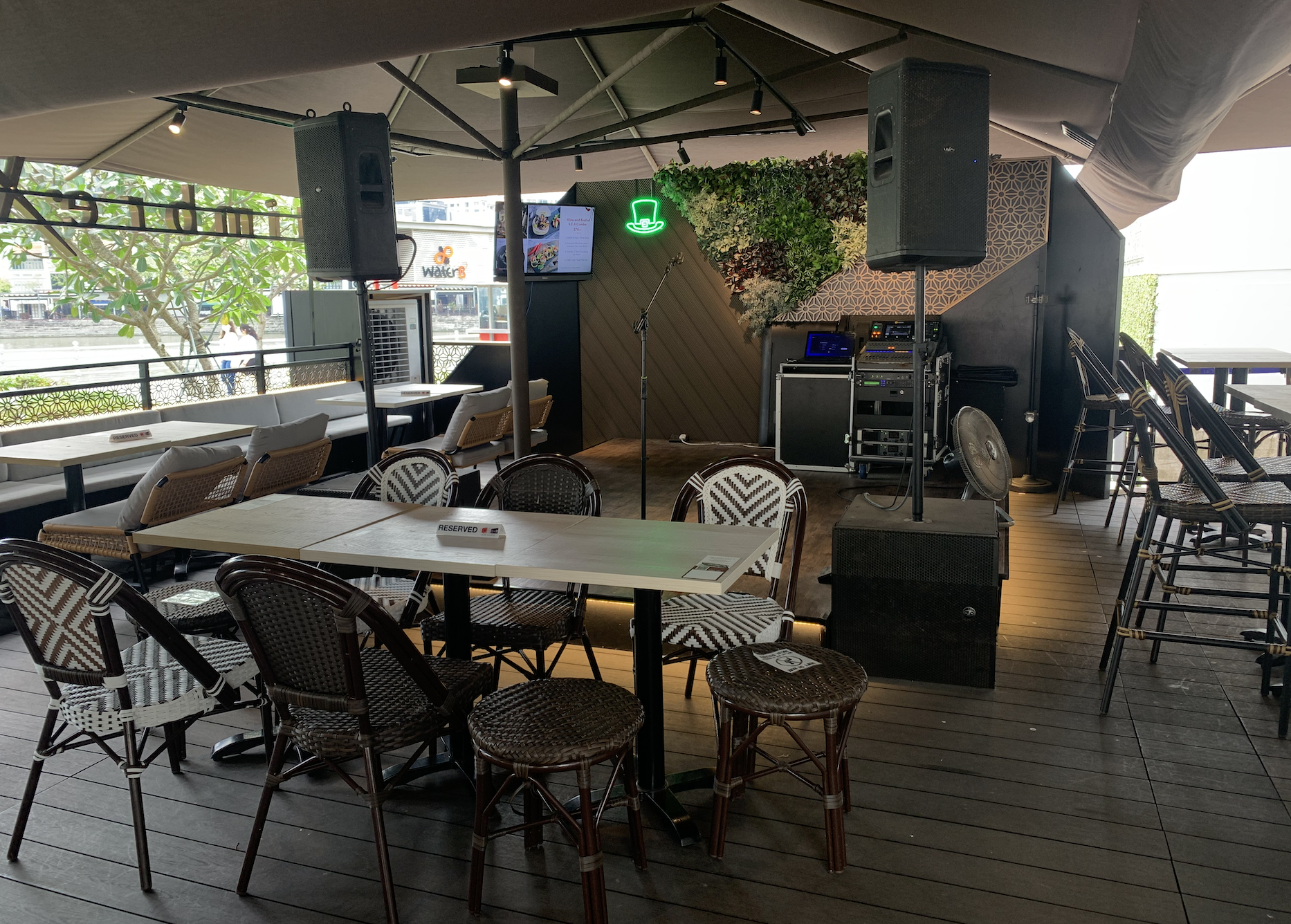 Image taken by Alfie Kwa.
Image taken by Alfie Kwa.
"If musicians don't have this platform, what are they going to do?" Loong said about the two years when establishments could not offer live music.
The bands really couldn't perform, so unfortunately their contracts with Timbre Group were terminated indefinitely.
When we met, live music wasn't back yet and it was obvious that Loong was worried about his resident bands. But, he remained hopeful that music would come back and said that those bands that are still with him were ready for live performances again.
Over the past two years, Loong knew he had to find a way to make sure his bands were still getting paid.
Timbre pivoted to holding virtual live streams (under a campaign called #KeepMusicAliveSG with EBX Live) where bands perform on Facebook.
And it was a hit, with virtual performances garnering close to half a million views.
Also when live music was being piloted, Timbre quickly organised performances again, but unlike normal Timbre fashion — without food or drinks and with a reduced capacity of one hundred. While it was different, customers still came, and they sold out 44 out of 66 shows that were held.
But still, the number of gigs was far fewer than what the Timbre outlets were seeing before the pandemic.
The company even helped some of his musicians find temporary employment, such as helping out at Covid-19 stations. At the same time, he kept his musicians close, hoping to call them back once live music was back.
Thankfully, it did come back from Mar. 29.
"It was a mad rush by the Timbre team to make sure that everything was ready to go," Loong said.
"There's a whole team behind setting up the stage. Also, there was a mix of emotions. Everybody was just trying to get used to being back as a band and rehearsing their songs."
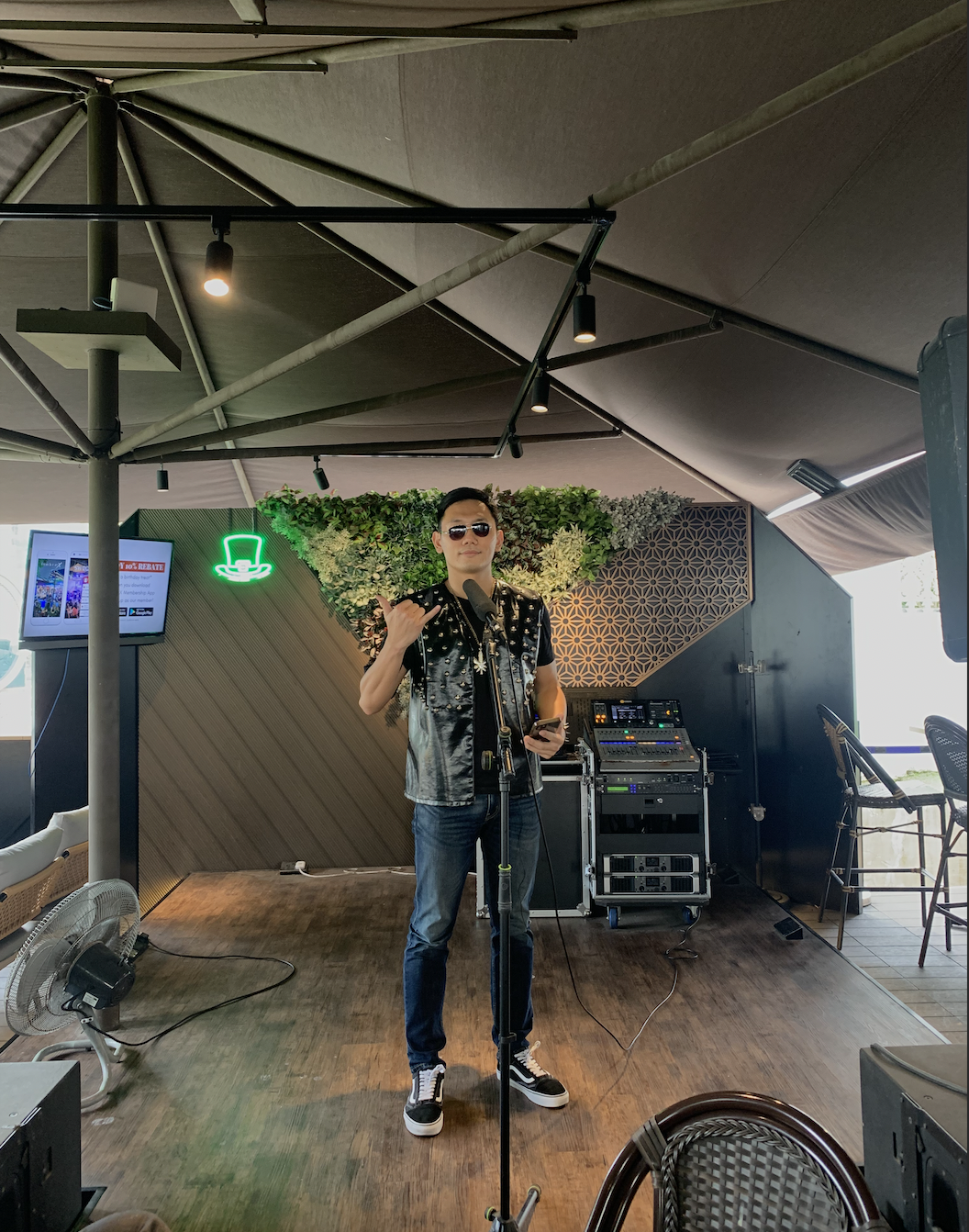 Just a singer looking for a job at Timbre. Image taken by Alfie Kwa.
Just a singer looking for a job at Timbre. Image taken by Alfie Kwa.
Coming out of Covid-19 stronger
At 49, Loong said that his life is just starting.
He took on a job as a lecturer at Singapore Management University (SMU) under the Event Management and Entertainment course in June 2020.
Timbre is also looking to expand (hopefully in the region, said Loong) and he is going to be a dad in a couple of months.
The past two years had their challenges but Loong said he focused on what he could do and what was best to support his employees through the difficult times. And to some extent, he was successful — he let on that besides the bands, not a single staff was let go over the past two years.
"What were the best things Covid-19 taught you?" I asked.
And he said three things:
Don’t get emotional when you have to close down
During the pandemic, he saw the closure of his first outlet, Timbre X @ The Substation, when the government took back the building.
Loong said that he has fond memories of 45-minute long queues, and youngsters having fun at The Substation.
But he had to let go and move on or else he'd be stuck in the past. And as a result, he could have missed opportunities to open more Timbre outlets like the newest one at Singapore Expo.
Importance of company culture and structure
"Why? Because when you come out of Covid-19, when you get busy again, you want the teams to work well."
Loong made use of the downtime during the pandemic to re-evaluate the company's core values.
Some of the core values are:
- Respect and have each other's back
- Support the local music community
"I think it's important sometimes to remind CEOs to understand what the core values are and communicate the core values to everybody."
He also needed to face the complaints and challenges the staff were facing so that he could make it better before everything got busier again.
Acknowledging his musicians' contribution to the business
Loong said that Covid-19 taught him to "put a premium on live music".
What he means is this — with live music, you have to pay more for the musicians and have more operating costs.
"The unfortunate impression or mindset that some people have is: 'Oh, the band should play for free.'. They don't realise that these bands have to be paid."
These musicians are, after all, doing this as a career.
He added that Covid-19 has also taught the company to better market their shows, to get more customers to watch their performances and to dine in.
"The audience (should) realise that live music is a premium. You come to a place like Timbre or any other place with live music, you dedicate a song or celebrate your birthday, it's entertainment for you and your friends."
But these musicians are human beings performing and they deserved to get paid.
And if this works well, it is important to reward the bands for their work. After all, live music has kept them afloat all these years.
"Was there anything you'd done differently over the past two years?" I ask.
Loong responded:
"I really do not have time for regrets. It's all about sustaining the business, making sure everybody stays employed, making sure the bands can keep on playing and performing and that we pay them and manage everything better.
But most of all, Loong called the challenges of the past two years a "wake-up call":
"It is a wake up call for businesses... Some people will call it an intervention, so it depends on how you react to it, and if you are humble enough to listen to the feedback and see the numbers and really discuss with the team in an honest way and find a way out of it, then you as a leader, what you can do is just to communicate it clearly and set an example."
Follow and listen to our podcast here
Top image taken by Alfie Kwa.
If you like what you read, follow us on Facebook, Instagram, Twitter and Telegram to get the latest updates.
